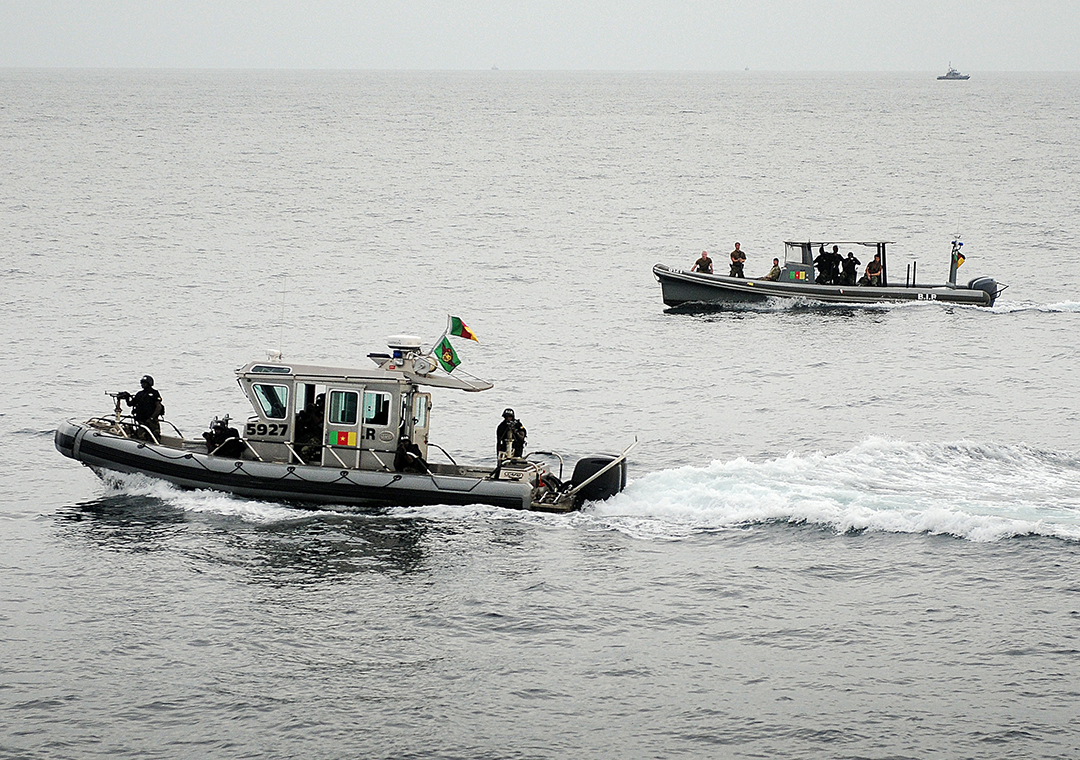Land-Based Approaches Necessary to Eliminate Piracy
ADF STAFF
Pirates attacked a Danish-owned oil and chemical tanker known as the Monjasa Reformer in March about 140 nautical miles off the coast of the Democratic Republic of the Congo.
Authorities later found the ship off the coast of São Tomé and Príncipe, but six of its 16 crew members had been kidnapped. The attack underscored the reality that while piracy is down globally and in Africa, the threat has not been eliminated.
Navies of West African countries and international navies, including the Danish, have recently increased patrols in the region, but the shipowners’ organization Danish Shipping has called for more action to be taken.

“The current situation clearly shows that most countries in the region do not have the necessary resources or capabilities to respond to such an incident,” the organization said in a statement in the wake of the attack.
Land-Based Approaches
A recent report by the MariTimesCrimes blog argues that while enhanced regional and international maritime security cooperation is effective, governments should also work to address the land-based roots of piracy. The report analyzed factors contributing to piracy in Somalia and Indonesia.
In the waters off Somalia, around the Horn of Africa and in the Gulf of Guinea, people who turn to piracy are often small-scale fishermen whose territories have been invaded for decades by foreign distant-water fishing fleets that often fish illegally. Foreign fleets typically use destructive practices to indiscriminately catch as much fish as possible while destroying ecosystems critical to the survival of many species.
As a result, fish stocks are dwindling around the continent and local fishing communities are left with empty nets. That has forced some artisanal fishermen to turn to other forms of employment, such as joining a pirate gang, which can pay up to five times as much as legal fishing.
The MariTimesCrimes report calls on governments to invest in infrastructure development, connectivity and social welfare programs to address the socioeconomic issues that fuel piracy.
“This includes improving education, healthcare, job opportunities and sustainable livelihoods in affected coastal areas,” the report said. “By helping to create a solid legal framework, improving law enforcement capabilities and strengthening governance structures, the long-term stability of affected countries will improve.”
Enhanced Efforts, Positive Results
The MariTimesCrimes report also urges coastal states to enhance maritime security efforts such as naval patrols, collaboration with international naval forces, coast guards and local law enforcement agencies.
That is happening in many areas around the continent.
Maritime security centers such as the Regional Maritime Information Fusion Centre in Madagascar, the Regional Centre for Operational Coordination in Seychelles and the Regional Monitoring, Control and Surveillance Centre in Ghana all collect data on fishing vessels suspected of committing sea crimes. Their information often helps local, regional and international allies collaborate on at-sea arrests.
Such collaboration has yielded positive results. According to the Organized Crime and Corruption Reporting Project, there were 81 piracy incidents in the Gulf of Guinea in 2020, making it the world’s hot spot for both piracy and illegal fishing. However, there were only 34 piracy incidents in 2021 and 19 last year.
The decline in piracy pleases analysts such as International Maritime Bureau (IMB) Director Michael Howlett, who argued that there is more work to do.
“While the IMB applauds these actions, it further calls on the coastal states of the Gulf of Guinea to increase their collaboration and physical presence in their waters to ensure a long-term and sustainable solution to address the crime of piracy and armed robbery in the region,” Howlett told defenceWeb in late 2022.


Comments are closed.